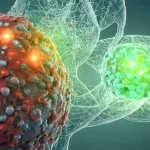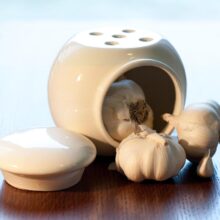The Potential Revolution: An Artificial Kidney that Could Transform Kidney Care
In the United States, there’s a serious problem with not having enough kidney transplants available. Right now, more than 100,000 people are waiting for a kidney transplant. They often have to wait a long time, usually between three and five years, to get one. This waiting period is a big issue because every day, about thirteen people who need a kidney transplant, pass away because they couldn’t get one in time.
This sad fact highlights just how big of a problem this is. Many people desperately need a new kidney, and the current system can’t keep up with how many are needed. This shortage of available kidney transplants shows how important it is to find new ways to help people with kidney problems.
The Kidney Project: A Solution in the Making
A significant effort to solve this kidney transplant crisis is called the Kidney Project. Dr. William Fissell from Vanderbilt University and Dr. Shuvo Roy from UC San Francisco are the two doctors in charge of the team effort. They’re working on something groundbreaking: the world’s first artificial kidney. This isn’t just any ordinary device; it’s a special kind of kidney that uses real living kidney cells and tiny, advanced microchips.
What’s cool about it is that it’s designed to work with the power of the human heart. This means it can do what a healthy renals does, like cleaning the blood and keeping everything balanced. It’s a big deal because it could be a new way to help people who have kidney problems and can’t find a donor for a transplant.
Understanding the Vital Role of Kidneys
Kidneys are super-important organs in our bodies. Think of them like an advanced filtering system. They do a bunch of crucial jobs to keep us healthy. First, they get rid of waste and extra water from our blood. This is important because it helps prevent harmful buildup in our bodies. But that’s not all; they also keep everything in balance. They manage the levels of water, salts, and minerals like sodium, calcium, and potassium in our blood. This balance is vital for our body to work correctly.
On top of that, kidneys are like little factories making essential hormones. These hormones have big jobs, like helping control our blood pressure, which is vital for our heart and arteries. They also make hormones that help our body make red blood cells, which carry oxygen all over our body. Plus, they play a role in keeping our bones strong and healthy. Without our kidneys doing all these things, our body wouldn’t work as it should.
Consequences of Kidney Failure
When kidneys fail, it’s a big problem for our health. Usually, kidneys clean our blood by removing waste and maintaining the right balance of water and minerals. But if they stop working, waste builds up in the blood. This is bad because it can poison the body. Also, the balance of important stuff in our blood, like salts and minerals, needs to be fixed. This imbalance can cause all sorts of health issues throughout the body.
Since the renals can’t do their job anymore, it leads to severe complications. Things in the body that we don’t usually consider, like blood pressure, making red blood cells, and keeping bones healthy, get affected. This can lead to dangerous situations for our health. It’s like a domino effect: one thing goes wrong, and then many other things can start to go wrong, too. That’s why kidney failure is considered a life-threatening issue. It’s not just about the kidneys; it affects the whole body.
Dialysis: A Lifeline for End-Stage Kidney Failure Patients
For people with severe kidney failure, especially at the end stage, dialysis becomes a crucial, though temporary, lifesaver. Imagine dialysis as a machine that takes over some of the kidneys’ jobs. It cleans the blood by removing waste, extra salt, and water. This helps balance important things in the blood, like minerals and electrolytes (like sodium and potassium). Dialysis also helps manage blood pressure, which is important for overall health.
But dialysis is quite a strict routine. Typically, someone needs to go through this treatment for about three to four hours, and they must do it three times weekly. It’s a big commitment and can be tiring.
While dialysis does the important job of replacing some renal functions, it’s not a cure. People on dialysis often live longer, but the treatment usually extends life by about five to ten years if a kidney transplant isn’t an option. This limitation highlights the need for more permanent solutions, like a successful kidney transplant, to fully address kidney failure.
The Artificial Kidney: A Glimpse into a Promising Future
Artificial kidney development is a giant leap forward in treating kidney problems. This high-tech device comprises fifteen microchips and actual living kidney cells. Think of it like a tiny, super-smart kidney that can do much of what your actual renals do. It’s designed to be a more lasting solution than dialysis and could even be an alternative to getting a kidney transplant.
Dialysis, while life-saving, is an intense and time-consuming process. Patients often spend hours each week hooked up to a dialysis machine, which can be challenging both physically and emotionally. In contrast, the artificial kidney is intended to offer a better quality of life. It functions inside the body, using the heart as its power source, and takes over for the failing renals. Doing what healthy renals do, like filtering blood and maintaining the right balance of fluids and minerals, could really change how we deal with kidney diseases.
Teams like The Kidney Project, under the direction of Dr. William Fissell and Dr. Shuvo Roy, put a lot of effort and research into this innovation. Their goal is to make this technology a reality, giving people with kidney failure a more convenient and effective treatment option. For more details about the artificial kidney and its development, you can check out scientific research on websites like those of major medical centers and universities involved in kidney research.
Testing and Validation: Paving the Way for Human Trials
The artificial kidney from The Kidney Project goes through numerous tests before patients can use it. This is to make sure it’s safe and works well. The scientists and doctors are working hard to fix any issues and improve the device.
They’re planning more detailed tests on animals first, and then they want to move on to testing it on humans. All of this ensures that when it’s ready, it’ll be safe and effective for people who need it. Check out research articles and updates from The Kidney Project and related scientific institutions for the latest and most detailed information on these tests.
A Glimpse into a Kidney Care Revolution
The Kidney Project’s artificial kidney is more than just a medical device; it is a sign of hope and the beginning of a new era in kidney care. For thousands awaiting transplants and those dependent on dialysis, it offers a future where kidney care is more effective, less restrictive, and aligned with the body’s natural processes.
The development of an artificial kidney has the potential to revolutionize kidney care. Eliminating the need for dialysis and resolving the organ shortage crisis could significantly impact patient well-being and reduce healthcare costs. This innovation stands to transform the lives of millions worldwide suffering from renal failure.











